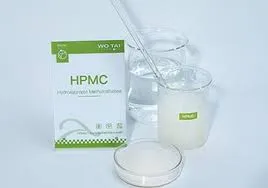
okt . 01, 2024 05:05 Back to list
Hydroxyethylcellulose Available for Purchase - Quality and Affordable Options Online
Understanding Hydroxyethyl Cellulose An Overview of Its Uses and Availability
Hydroxyethyl cellulose (HEC) is a versatile, non-toxic polymer derived from cellulose, a natural polymer obtained from plant fibers. It has become increasingly popular across various industries due to its unique properties, including viscosity, adhesive qualities, and film-forming capabilities. As the demand for eco-friendly and effective ingredients rises, hydroxyethyl cellulose has emerged as a key component in many formulations. This article explores the characteristics, applications, and availability of hydroxyethyl cellulose for sale.
Characteristics of Hydroxyethyl Cellulose
HEC is a water-soluble derivative of cellulose, primarily produced through the etherification of cellulose with ethylene oxide. One of the most notable properties of HEC is its ability to form a gel-like solution when mixed with water, which can then be adjusted for viscosity according to the concentration used. This property makes it highly desirable in many formulations, allowing for controlled thickness and texture.
Another significant advantage of hydroxyethyl cellulose is its stability under various conditions, including changes in temperature and pH. This stability ensures that products containing HEC maintain their desired performance over time, even when subjected to varying environmental conditions. Additionally, HEC is easily biodegradable, making it an environmentally friendly alternative to synthetic polymers, which has only added to its appeal in recent years.
Applications of Hydroxyethyl Cellulose
The versatility of hydroxyethyl cellulose contributes to its widespread application across diverse industries
1. Cosmetics and Personal Care HEC is commonly used in shampoos, conditioners, creams, and lotions due to its thickening and emulsifying properties. It helps enhance the texture and stability of these products, making them more appealing to consumers.
2. Pharmaceuticals In the pharmaceutical industry, hydroxyethyl cellulose serves as a binder and a film-forming agent in various drug formulations. Its ability to control the release of active ingredients makes it valuable in the development of controlled-release medications.
3. Food Industry HEC is also utilized as a thickener and stabilizer in food products. Its ability to improve texture and enhance mouthfeel makes it a popular choice in sauces, dressings, and dairy products.
hydroxyethylcellulose for sale

4. Construction In construction materials, HEC is used as an additive in cement and plaster formulations. It enhances workability and improves the adhesive properties of these materials, which is critical in ensuring the longevity and durability of structures.
Availability and Purchasing Hydroxyethyl Cellulose
With the growing demand for hydroxyethyl cellulose across various industries, numerous suppliers now offer HEC for sale. When purchasing HEC, it is essential to consider the following factors
1. Purity and Quality Always seek high-quality, pharmaceutical-grade HEC to ensure its safety and efficacy for your intended application, especially in pharmaceuticals and cosmetics.
2. Supplier Reputation Choose reputable suppliers with a track record of reliability and customer satisfaction. Reviews and recommendations from other users can provide valuable insights.
3. Pricing While cost is an important factor, it should not compromise quality. Always compare prices among different suppliers while ensuring that they meet your quality standards.
4. Availability of Different Grades Hydroxyethyl cellulose comes in various grades, suitable for different applications, from low to high viscosity. Ensure that your supplier offers the right grade for your specific needs.
Conclusion
Hydroxyethyl cellulose is an invaluable ingredient with diverse applications ranging from cosmetics and food to pharmaceuticals and construction. Its unique properties make it a preferred choice for formulators seeking eco-friendly and effective solutions. As the demand for HEC continues to grow, prospective buyers can find numerous options for its purchase. By considering quality, supplier reputation, and application needs, businesses can harness the benefits of hydroxyethyl cellulose and contribute to innovative and sustainable product development. Whether you are a manufacturer or a consumer, understanding the importance of HEC can significantly impact your projects and ventures.
-
Versatile Hpmc Uses in Different Industries
NewsJun.19,2025
-
Redispersible Powder's Role in Enhancing Durability of Construction Products
NewsJun.19,2025
-
Hydroxyethyl Cellulose Applications Driving Green Industrial Processes
NewsJun.19,2025
-
Exploring Different Redispersible Polymer Powder
NewsJun.19,2025
-
Choosing the Right Mortar Bonding Agent
NewsJun.19,2025
-
Applications and Significance of China Hpmc in Modern Industries
NewsJun.19,2025







